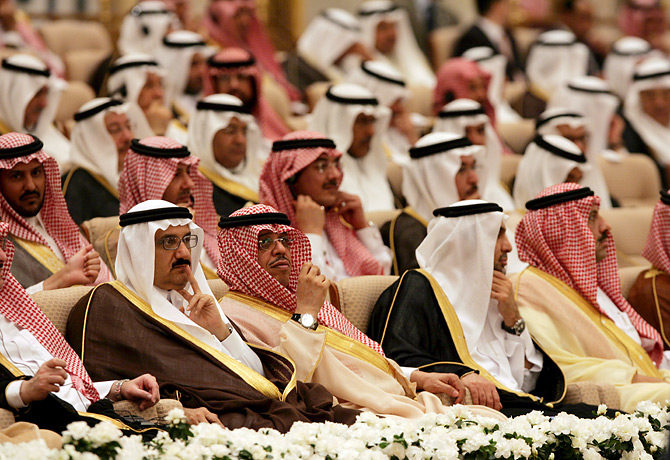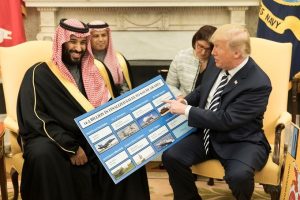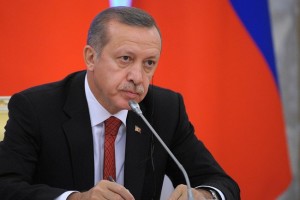by Thomas W. Lippman
The rulers of Saudi Arabia are becoming masters of a diplomatic style best described as sulking in the tent. If a country or organization is not performing in a way that suits them, they issue a petulant statement and walk away. It’s easier than constructive engagement, but far less effective, as the Saudis are — or ought to be — learning.
A longstanding example is their refusal to do business with the government of Nouri al-Maliki in Iraq. Riyadh backed a rival candidate in Iraq’s election, and never accepted the outcome. The Saudis have no embassy in Iraq — two years ago they appointed an ambassador for the first time in 20 years but he was officially “nonresident,” living outside the country — and minimal economic investment. The result is that they forfeited the field of influence in Baghdad to the country they consider the greatest threat, Iran, even as they accuse Maliki of being an agent of Iranian ambitions.
Then came the decision to turn down a seat on the United Nations Security Council, a seat the Saudis had sought for years. The Saudis said they did it to protest the Security Council’s inability to deliver an Arab-Israeli peace settlement acceptable to the Palestinians, and its inability to halt the civil war in Syria. But nobody heard that tree when it fell in the forest. If there is any evidence that the Security Council or its individual members has adopted policies more to Riyadh’s liking as a result of this theatrical but futile gesture, it has not come to light. Meanwhile, the Saudis forfeited any chance they might have had to influence the Security Council from the inside. Jordan replaced Saudi Arabia, and life went on as before.
Now the Saudis, along with Bahrain, and the United Arab Emirates, have announced the withdrawal of their ambassador from neighboring Qatar. The three released a long, murky statement that basically accused Qatar of failing to implement an agreement among the Gulf Cooperation Council (GCC) members to work together to ensure their security, to refrain from interfering in each other’s internal affairs, and to halt support for “hostile media.” That was a clear reference to Al Jazeera, the popular satellite news channel financed by Qatar’s ruling family, which among other things provides a forum for the popular preacher Youssef al-Qaradawi, a vocal critic of Saudi Arabia and the UAE.
The Saudis, who support the military government that took over in Egypt last year, have made no secret of their displeasure with Qatar’s backing of the previous government, which was headed by the Muslim Brotherhood and President Mohamed Morsi. The military government in Cairo joined Saudi Arabia, the UAE and Bahrain in withdrawing its ambassador from Doha, a hollow gesture since he had already left.
On Friday, Saudi Arabia formally designated the Brotherhood, many of whose members have found refuge in Qatar as Egypt cracked down on them, a terrorist organization. The Saudis’ quarrel with the Brotherhood is not about religious issues; their problem is the popularity of the Brotherhood as a political organization, which by its nature poses a threat to the al-Saud regime.
For Saudi Arabia, the public breakdown of comity within the GCC represents a sharp policy reversal. Just three months ago, at a GCC summit meeting, Saudi Arabia was promoting the idea of a formal political union among the six members. That plan was shot down by Oman, not by Qatar, but it is highly unlikely that Qatar would have supported it had it come to a vote. Although dwarfed by Saudi Arabia in size, Qatar has been playing an outsize role in regional affairs that is often out of synch with Riyadh, in Syria as well as in Egypt, and Doha would not have welcomed the inevitable Saudi dominance of a closer, formal union.
The Saudis might ask themselves how their diplomacy over the past three years or so has advanced their objectives. They wanted a friendly government in Iraq that would resist Iranian encroachment. They wanted the U.N. Security Council to turn up the heat on Israel in favor of the Palestinians. They demanded an end to the civil war in Syria even as they supported rebels fighting to oust President Bashar al-Assad. And they espoused a political union of the GCC members. None of those goals appears within reach, nor is it apparent that Riyadh, having withdrawn from the diplomatic arena, has a Plan B for achieving any of them. Perhaps some new strategy will emerge after President Obama visits Riyadh later this month.
The GCC was not created to be a defense organization; it was created to promote political and economic solidarity among the Gulf monarchies. That objective has long been unrealistic as the members went their own way on everything from energy policy to relations with Iran. Now it appears to be entirely out of reach.
For the United States, the diplomatic spat within the GCC might seem to be a minor concern, except that Washington has been pumping advanced weapons into the member states in a longstanding effort to form an effective regional security force that would confront Iranian ambitions. Recognizing that the members would never agree on a joint military command, U.S. defense officials have promoted a policy of providing compatible equipment and communications systems that in the event of a direct threat could all function in coordination with each other and with the U.S. Central Command. Those efforts will continue, regardless of the tensions among the GCC’s leaders.






The caption for the above pic might as well read, “Money can’t buy happiness. At best it can only put off that day when your head is being sawed at the neck by a rusty blade.”
Do the hard line Salafist clergy in Saudi Arabia hold all the cards?
Saudis has no strategic depth and no wonder they are just nomad people with a lot of money
The Arab World has always been a fragmented world, because even in its advance stage the Arab World has always been tribal (racist), led by leaders whose tribal identity and sense of glory, honor and self-image have been vital to their survival among their respective tribes, both at home and in the West; in other words, Arab tribal identity takes precedence over military-economic cooperation; hence, the Arab rulers’ habitual undermining of each other, in order to boast their own leadership credentials resulting in the failure of ‘Arabism’ in the face of the inflexible tribal identities.
Historically the Arab rulers have hardly sustained vital long lasting cooperative relations – and the reason the Arab League with its 22 member states has so far survived is due to the fact that often it has been content with its members’ lip service and their cultural projects and the likes, rather than requiring their full commitment to political, economic and military cooperation; plus when necessary it has been a protective voice for its weak members in the face of foreign aggression.
GCC is another example; lacking a powerful communication means, due to their own political repression, the Arab rulers envy Qatar’s Al Jazeera, yet fear its legitimate political potential: they know too well that their bureaucratic one man role, emulating the West in appearance but failing in management and efficiency and respect for the individual, have further sustained their underdevelopment and in the absence of democratic institutions, the rulers having been the sole decision makers and failed to create a democratic space, they have produced masses of alienated Arab youths who despite their talents and potentials cannot be allowed to have active political roles, and may eventually revolt. Millions of Arab youths are unjustly despised and racially denigrated outside the Arab World while being oppressed at home, no wonder why the Arab youths so deeply despise their rulers who lacking charisma waste billions of dollars every year to boost their self-image by constructing tall buildings, buying more arms, accumulating more wealth, and, as Davidson has noted, by offering/bribing staggering amounts to prestigious Western universities to protect their shaky self-made images.
Progress for the unelected undemocratic Arab rulers has meant getting richer and with that has come their military dependence on the West in order to protect their illegitimate wealth and unaccountable authority; meanwhile, by being suspicious and jealous of one another, and each ruler, despite being unqualified, desiring to be the key player to enhance its own image, they have continued to contribute to their inevitable fragmentation within the Arab World.
Pity the talented Arab youths! They deserve the world’s respect and moral support, rather than be ignored and denied active political roles, democratic institutions, free elections, freedom of expression and dignity – denied not just by their oppressive rulers but by the very western supporters/patrons of their oppressive rulers who claim to stand up for democracy and human rights.